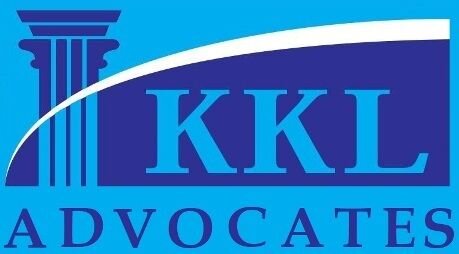Best Collaborative Law Lawyers in Uganda
Share your needs with us, get contacted by law firms.
Free. Takes 2 min.
Free Guide to Hiring a Family Lawyer
Or refine your search by selecting a city:
List of the best lawyers in Uganda
About Collaborative Law in Uganda
Collaborative Law in Uganda is a growing field of legal practice that emphasizes cooperation over confrontation. This alternative dispute resolution method allows parties to work together with their lawyers to find mutually acceptable solutions, avoiding the adversarial nature of traditional court proceedings. Collaborative Law is particularly effective in family law cases, commercial conflicts, and community disputes, offering a more harmonious and often cost-effective solution. In Uganda, Collaborative Law is recognized as a valuable tool for resolving disputes amicably, keeping the process confidential and allowing the parties involved to maintain control over the outcome.
Why You May Need a Lawyer
There are several situations where you may need legal assistance in Collaborative Law. These include:
- Family disputes: Collaborative Law is particularly utilized in divorce and child custody cases, where maintaining a positive relationship post-resolution is crucial.
- Business disagreements: Companies and business partners use Collaborative Law to resolve contract disputes, commercial disagreements, or shareholder issues without damaging business relationships.
- Property settlements: When dividing property or assets, Collaborative Law helps parties reach fair and mutually satisfactory arrangements.
- Employment matters: Resolving disputes between employers and employees can be achieved through Collaboration, preserving professional relationships.
Local Laws Overview
Ugandan law recognizes Collaborative Law as part of the broader alternative dispute resolution framework. Key aspects relevant to Collaborative Law in Uganda include:
- Confidentiality: The process is private and protects the interests of all parties involved, safeguarding sensitive information from public proceedings.
- Voluntary Participation: All parties must agree to engage in the collaborative process willingly and aim to resolve the issue without going to court.
- Legal Representation: Each party has a specially trained collaborative lawyer to guide them through the process, ensuring legal interests are protected.
- Commitment to Resolution: All parties agree to focus on settlement rather than litigation, optimizing collaborative solutions over adversarial outcomes.
Frequently Asked Questions
What is Collaborative Law?
Collaborative Law is a legal process enabling parties to resolve disputes amicably without resorting to litigation. It involves cooperative negotiation with the support of collaborative lawyers.
How does Collaborative Law differ from mediation?
While both are alternative dispute resolution methods, Collaborative Law always involves legal representation for each party throughout, whereas mediation may not.
Is Collaborative Law suitable for all types of conflicts?
It is most effective in cases where parties expect to maintain a relationship, such as family or business disputes. It may not be ideal for every conflict, particularly where there is a power imbalance or an uncooperative party.
What happens if we can't reach an agreement?
If an agreement isn't reached, parties may still choose to proceed with litigation, but collaborative lawyers typically withdraw and different legal representation is sought for court proceedings.
Can Collaborative Law be used for business disputes?
Yes, many businesses prefer Collaborative Law to resolve disputes privately and preserve professional relationships.
What are the costs involved in Collaborative Law?
Costs vary but are generally lower than litigation. The collaborative process can be more efficient, shortening the time required to reach an agreement.
Is the outcome legally binding?
Yes, once an agreement is reached, it can be made legally binding through a formal settlement agreement or court order.
How do I find a collaborative lawyer in Uganda?
Identify lawyers specialized in collaborative practice through the Ugandan Law Society or other professional legal associations offering this service.
What role do other professionals play in Collaborative Law?
Sometimes, financial advisors, child specialists, or mental health experts may be involved to provide expertise that supports an informed and balanced resolution.
What if one party refuses to cooperate?
The collaborative process relies on cooperation. If one party is unwilling to engage constructively, it may be necessary to consider other dispute resolution methods, including mediation or litigation.
Additional Resources
For more information on Collaborative Law in Uganda, consider reaching out to these resources:
- Ugandan Law Society: Provides information and directory for finding qualified collaborative lawyers.
- Law Development Centre: Offers educational resources on collaborative practices.
- Ministry of Justice and Constitutional Affairs: Can provide insights and guidance on legal processes related to Collaborative Law.
Next Steps
If you need legal assistance in Collaborative Law, consider the following steps:
- Determine if your case is suitable for Collaborative Law by consulting with a legal professional.
- Contact a lawyer who specializes in collaborative practices to discuss your needs and explore the process.
- Prepare for initial meetings by gathering relevant information and documents related to the dispute.
- Commit to a cooperative and open mindset throughout the process to maximize the potential for a successful outcome.
Lawzana helps you find the best lawyers and law firms in Uganda through a curated and pre-screened list of qualified legal professionals. Our platform offers rankings and detailed profiles of attorneys and law firms, allowing you to compare based on practice areas, including Collaborative Law, experience, and client feedback.
Each profile includes a description of the firm's areas of practice, client reviews, team members and partners, year of establishment, spoken languages, office locations, contact information, social media presence, and any published articles or resources. Most firms on our platform speak English and are experienced in both local and international legal matters.
Get a quote from top-rated law firms in Uganda — quickly, securely, and without unnecessary hassle.
Disclaimer:
The information provided on this page is for general informational purposes only and does not constitute legal advice. While we strive to ensure the accuracy and relevance of the content, legal information may change over time, and interpretations of the law can vary. You should always consult with a qualified legal professional for advice specific to your situation.
We disclaim all liability for actions taken or not taken based on the content of this page. If you believe any information is incorrect or outdated, please contact us, and we will review and update it where appropriate.
Browse collaborative law law firms by city in Uganda
Refine your search by selecting a city.
















